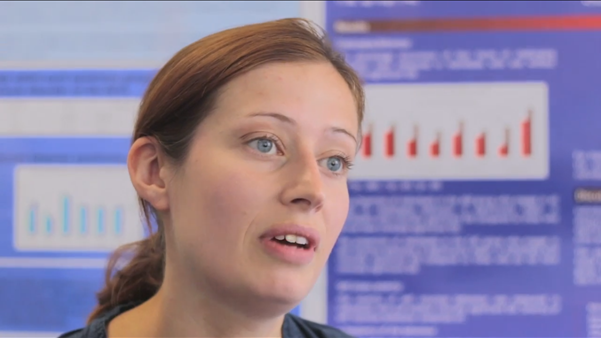Repetitive Behaviour in Fragile X Syndrome
What is repetitive behaviour?
Repetitive behaviours are commonly reported in individuals with intellectual disabilities; however, research has shown that some repetitive behaviours are more common in certain syndromes. You can read background information on repetitive behaviour in our ‘common issues’ page here. Alternatively, you can watch the short film at the top of this page.
What does repetitive behaviour look like in fragile X syndrome?
Repetitive behaviour is very common in individuals with fragile X syndrome. The first studies that looked at repetitive behaviour in fragile X syndrome showed that males with the syndrome engage in repetitive speech more often than in individuals with intellectual disability without fragile X syndrome.
When compared to other genetic disorders it has been found that individuals with fragile X syndrome often show repetitive behaviour more frequently, and show a greater number of different types of repetitive behaviour.
Hand stereotypy, tidying up, lining up objects, restricted conversation, preference for routine, wanting things to be ‘just so’, repetitive phrases, repetitive questions and echolalia (repeating back sentences, words or sounds) are heightened in fragile X syndrome.
Download a chart showing the profile of repetitive behaviours in fragile X syndrome.
Are repetitive behaviours related to autism spectrum disorder in fragile X syndrome?
Repetitive behaviours are seen in Autism Spectrum Disorder (ASD); however, in some studies it has been found that people with fragile X syndrome who showed high levels of repetitive behaviour were not necessarily the individuals who showed high levels of other behaviours associated with ASD (i.e. social and communication skill deficits).
Download an original research article here.
What causes repetitive behaviours?
There have been very few studies that have focused on the causes of repetitive behaviour in fragile X syndrome so it is not entirely clear why these behaviours occur. In other syndromes, repetitive behaviour has been associated with executive function difficulties.
To hear more about the possible link between executive functioning and repetitive behaviour watch the video above.
In one study that explored triggers for repetitive behaviour in fragile X syndrome, repetitive questions were found to follow changes to routines or expectations in 8 out of 10 boys with FXS. An increase in repetitive speech, self-injurious behaviour and stereotyped behaviour was also reported following changes to routines and one possibility is that these behaviours are related to anxiety. Some parents/carers report that their children did not appear to have full control over anxiety.
Download the original research article for this study here.




